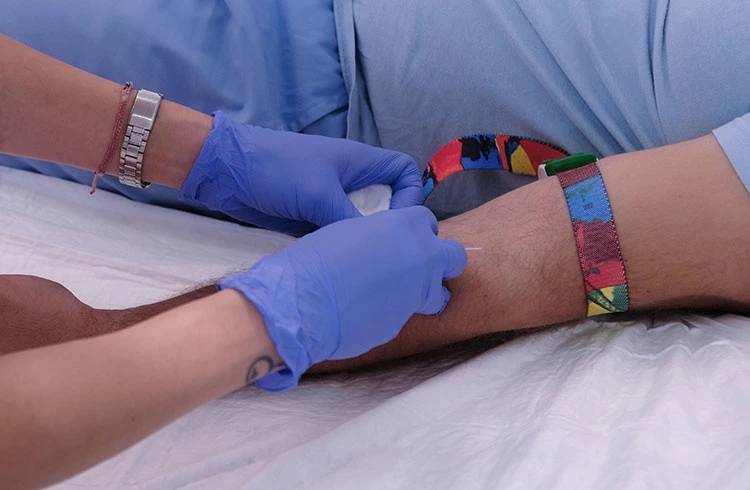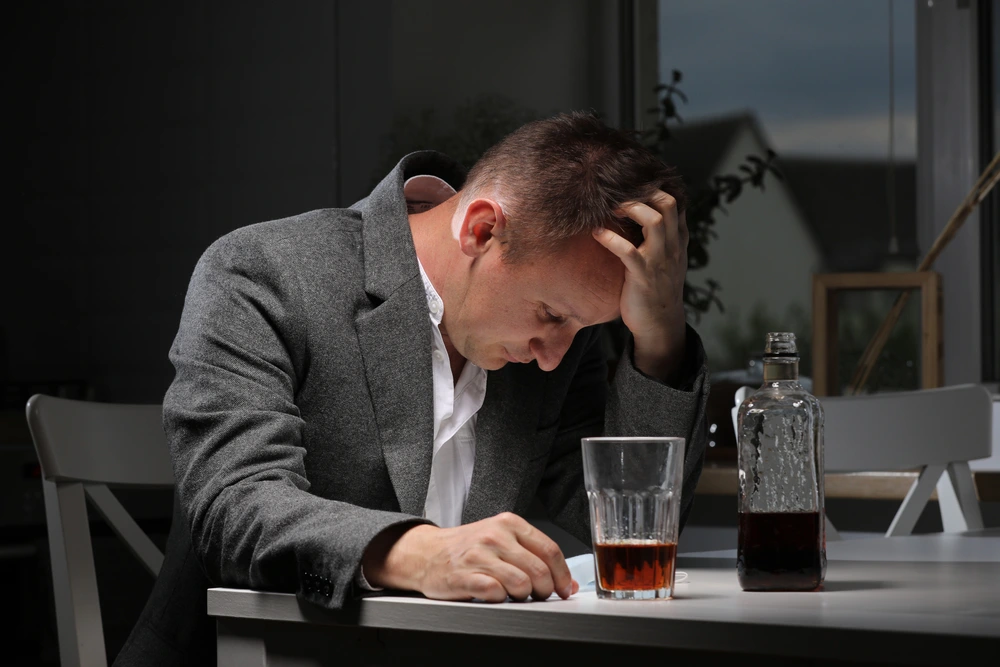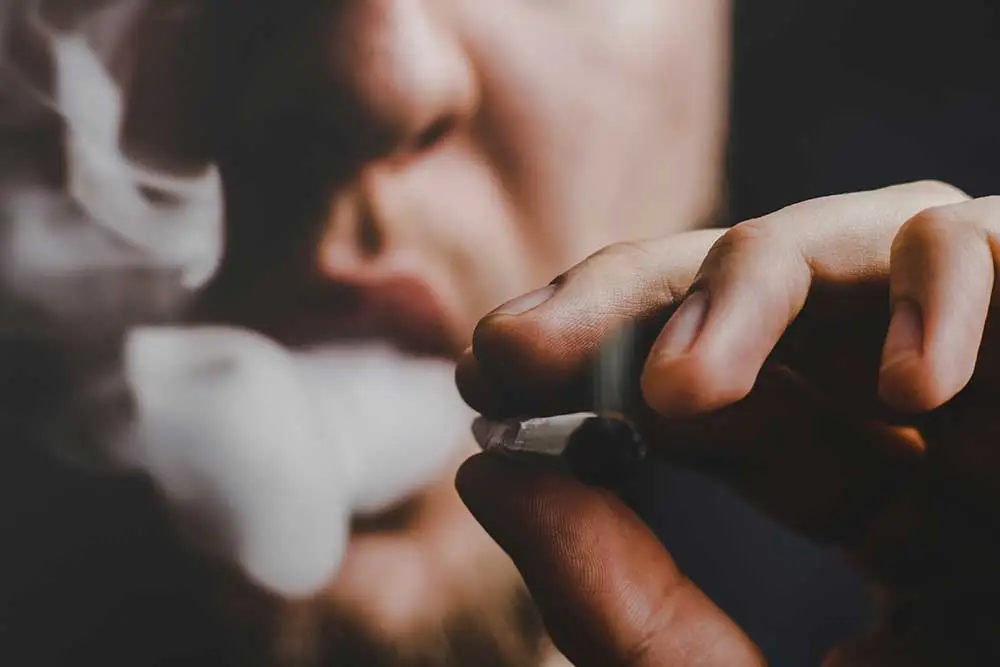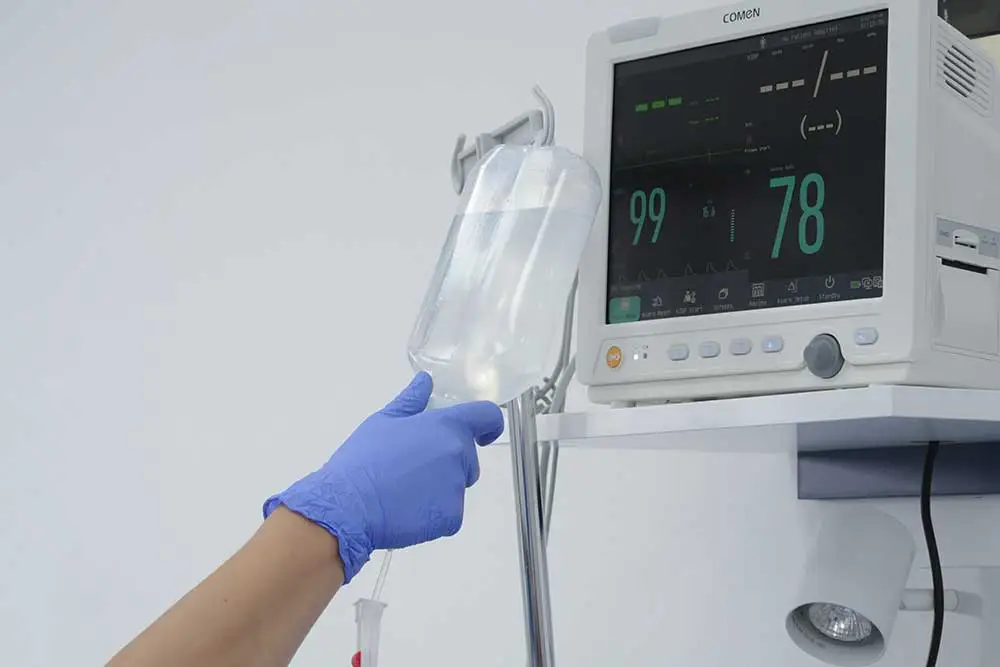When it comes to drugs or psychoactive substances, eyes of the global society are turned towards the most used and the most notorious drugs like heroin, cocaine and cannabis. However, there is another class or group of substances that causes addiction and has its fair share of high-abuse potential, which results in alarming rates of overdose deaths. We are talking about benzodiazepine drugs. Just to illustrate benzodiazepines drugs health-related dangers – overdose death rates involving benzodiazepines drugs abuse have increased 10 times from 1999. to 2017!
Although the use of benzodiazepine drugs or benzos can cause serious side effects for both genders, benzodiazepine drugs are especially for women, resulting in fatal outcome. For instance, between 1999 and 2017, benzodiazepine-involved deaths for women aged 30-64 increased up to 830 percent for women, according to the U.S. Centers for Disease Control and Prevention (CDC).
Nevertheless, this data and stats are easily overlooked, since benzodiazepines drugs, as legal substances, are being medically prescribed more and more, which means that the use of benzodiazepine drugs is on really high and alarming level. Among the benzodiazepines list, the most prescribed are Xanax (Alprazolam), Valium (Diazepam) and Ativan (Lorazepam).
Not just that, but there is a lot of evidence that more and more people are consuming benzodiazepines drugs for longer periods. This is a pattern that creates destructive and bad habit, which paves the way to addiction, dramatic benzodiazepines side effects, including withdrawal and overdose.
Benzodiazepine drugs have sedating and tranquilizing effects. When people abuse benzos (take in higher doses or more frequently than intended) or mix them with other psychoactive substances such as alcohol, benzodiazepine drugs can be deadly the same ways opioids can be.
Benzodiazepine Drugs – What Is Benzodiazepine?
Unlike cocaine or heroin, benzodiazepine drugs are legal, which means they can be medically prescribed and used for medicinal purposes. But benzodiazepines drugs have a black box warning, which we will explain later on. So, the question arises – what is benzodiazepine? How do benzodiazepines work? What is the mechanism of action benzodiazepines?
First things first.
Benzodiazepines drugs are also called benzos or benzo drugs. They belong to the prescriptive sedation class of drugs. In other words, benzodiazepines drugs include a class of pharmaceutical drugs that is prescribed for a wide range of mental disorders and conditions. Benzodiazepine drugs are used to treat moderate to severe anxiety, panic attacks, epileptic seizures, insomnia. Sometimes, benzodiazepines drugs are used to treat withdrawal symptoms caused from other central nervous system (CNS) depressants, like alcohol.
Benzodiazepine drugs are a type of sedative medication and depressant drugs with calming effects. Due to their high addictive potential, benzodiazepines drugs are generally prescribed for shorter period of use. Unfortunately, as we have already mentioned, there is a significant problem with benzodiazepines drugs abuse that, consequently, leads to addiction.
Benzodiazepine drugs are Schedule IV controlled substances. In other words, their abuse potential is well-known and can be used only with doctor’s prescription. Despite this fact, many people find alternative ways to obtain and find this medicine on street (black market). On the street, benzodiazepine drugs have other names, such as Tranks, Downers, Bars, Sticks, French Fries, Ladders, or simply Benzos or Benzo Drugs.
With the potential for abuse and addiction, it’s really important to know how do benzodiazepines work, what are their potential adverse health effects and what are signs and symptoms of benzodiazepines drugs abuse and misuse. This is of the utmost importance, because the compulsive and continued use of benzodiazepines drugs leads to psychical tolerance and physiological dependence. As a result, person may feel the need to take more benzos in order to experience the desired effect and then continue taking them to avoid withdrawal.

How Do Benzodiazepines Work?
One of the most common questions, when it comes to benzodiazepine drugs, is – how do benzodiazepines work? In other words – what changes do they make in or brain neurochemistry? What is the mechanism of action benzodiazepines?
As we have said earlier, benzodiazepines drugs are a class off medications that are prescribed to treat various conditions. Doctors often prescribe benzos to treat anxiety, sleep disorders, acute stress reactions, muscle spasms, panic attacks and seizures. However, off-label, benzodiazepine drugs can be used to treat alcohol withdrawal symptoms, tics or even bipolar disorder. In some cases, benzodiazepine drugs can be used for general anesthesia, sedation prior to surgery or diagnostic procedures, depression, nausea and vomiting.
Certain benzos are used to treat convulsions for people who have cerebral palsy.
But, how do benzodiazepines manage to do this? How do they work? Our bodies have a natura chemical that is called gamma aminobutyric acid (GABA). This chemical is responsible for slowing down or reducing the following activities in brain:
- Reasoning,
- Memory,
- Emotions,
- Essential functions, such as breathing.
Well, the mechanism of action benzodiazepines is that they increase the effects of GABA in brain and all over the bod, resulting in calming and tranquilizing effects. In other words, by increasing the effects of GABA, benzodiazepines drugs can:
- Make a person feel relaxed and sleepy (sedation effects of benzodiazepines);
- Reduce the anxiety levels (anti-anxiety effects);
- Relax the muscles (muscle relaxant effects).
So, when taken, benzodiazepines drugs slow down brain’s activity and bodily nerve impulses. This can result in drowsiness, uncoordinated movements, slower reaction times, etc. Although the mechanism of action benzodiazepines is almost always the same for all benzos, there are a few key differences between the variations of the drug. For instance, each benzo has a unique half-life, dosage, absorption time and abuse and addiction potential.
Benzodiazepine Drugs and Benzodiazepines Examples
Most benzodiazepine drugs come in pill or tablet form, since the main way of taking and consuming benzodiazepines drugs is orally. Nevertheless, there a lot of different benzodiazepines examples or benzodiazepines drugs. They yare classified in different groups, depending on their strength, purposes, duration of action, etc. So, when it comes to benzodiazepines list, we can separate them in to large groups:
- Short-term benzodiazepines drugs
- Long-term benzodiazepine drugs
Benzodiazepines List – Most Common Benzodiazepine Drugs
Some of the most commonly prescribed benzodiazepine drugs include:
- Lorazepam (Ativan)
- Clonazepam (Klonopin)
- Alprazolam (Xanax)
However, all these benzodiazepine drugs can alter brain neurochemistry and quickly create dependence and tolerance, even if the person takes the pills in accordance to medical prescription and responsibly.
Also, these benzodiazepines can be more effective or occasional use than other alternatives. But it is recommended that these benzodiazepine drugs should be consumed under strict and close medical supervision.
1) Benzodiazepines List – Short-term Benzodiazepines
Short-term benzodiazepines drugs can be used for many purposes. That includes treating insomnia, calming anxiety and restlessness, and causing amnesia when they’re combined with anesthesia before surgery.
As the name suggests, they are not intended for long-term use and they can’t work for a long period of time. But that doesn’t mean that short-term use of these benzodiazepines can’t cause addiction, meaning they are not any less addictive. These benzodiazepines drugs include, among others:
- Etizolam (ProSom)
- Flurazepam (Dalmane)
- Temazepam (Restoril)
- Triazolam (Halcion)
- Midazolam (Versed)
2) Benzodiazepines List – Long-term Benzodiazepines
Unlike short-term benzodiazepines, long-term benzodiazepines drugs last longer in a person’s body and have longer effective periods. In other words, they are considered to be safer for long-term use, but that doesn’t mean they are risk-free.
Long-term benzodiazepines are used for people who need management for daily anxiety, serious insomnia. Sometimes, this type of benzodiazepines is used as anti-convulsant. However, some of these benzodiazepine drugs can be used off-label, but they still have the same risks and benzodiazepines side effects when used for the reasons as when used for on-label problems.
With that being said, even if some form of benzodiazepine is intended for long-term use and is considered safe with medical supervision, that doesn’t mean that long-term benzodiazepine drugs are safe for abuse, recreational use or use without medical prescription or supervision.
Benzodiazepines, like all medications, always come with a certain amount of risk, and only your doctors are likely to be able to assess and manage your risk effectively. These benzodiazepines drugs include:
- Alprazolam (Xanax)
- Clorazepate (Tranxene)
- Halazepam (Paxipam)
- Chlordiazepoxide (Librium)
- Lorazepam (Ativan)
- Clonazepam (Klonopin)
- Quazepam (Doral)
- Diazepam (Valium)
- Oxazepam (Serax)
- Prazepam (Centrax)
What Are Benzodiazepines Side Effects?
Even if benzodiazepine drugs are used properly and responsibly, they can cause many benzodiazepines side effects. These drugs work differently on every person, meaning that every reacts differently to these medications, so it doesn’t necessarily mean that a person will experience some of these effects.
Keep in mind that we are talking about the effects when benzodiazepines drugs are taken in accordance to the medical prescription.
Most Common Benzodiazepines Side Effects include:
- Drowsiness;
- Confusion;
- Dizziness;
- Light-headedness;
- Unsteadiness (this is especially risk with older people, who may fall and experience injuries);
- Slurred speech;
- Muscle weakness and joint pains;
- Memory problems;
- Constipation or diarrhea;
- Nausea and vomiting (feeling sick);
- Dry mouth;
- Blurred vision.
Less Common Benzodiazepines Side Effects include:
- Low blood pressure;
- Digestive problems;
- Headaches;
- Rash;
- Increased saliva production;
- Double vision and sight problems;
- Shaking and tremors;
- Changes in libido;
- Loss of bladder control (incontinence)
- Difficulties with urinating.
Some of the Rare Benzodiazepines Side Effects include:
- Yellowish skin color (jaundice);
- Blood disorders;
- Breast development in man (gynecomastia);
- Memory problems with benzodiazepines (these problems are likely to be with retaining new memories while you take the medication, meaning it won’t cause a person to forget old memories);
Unusual or Paradoxical Benzodiazepines Side Effects include:
Sometimes, benzodiazepine drugs can cause effects that are opposite of the purpose od these medications. These benzodiazepines side effects are known as paradoxical or unusual effects. They include:
- Aggressiveness;
- Anxiety;
- Irritability;
- Depression;
- Agitation;
- Depersonalization (feeling completely detached from surrounding);
- Delusions (strongly held beliefs that other people don't share);
- Paranoia and psychosis;
- Hallucinations;
- Derealization (feeling out of touch with reality);
- Vivid dreams and nightmares;
- Significant changes in personality;
- Loss of normal inhibitions;
- Restlessness;
- Rages;
- Suicidal thoughts or behavior.
Note that these benzodiazepines side effects may happen with any type of benzodiazepine. They are more common in children and older people, and with short-acting benzodiazepines.
Long-term Benzodiazepines Side Effects include:
If a person takes benzodiazepines for long period of time (more than two or four weeks, or even months), some long-term benzodiazepines side effects could kick in:
- Difficulties with concentration;
- Feeling slow or dulled;
- Loss of confidence;
- Amnesia;
- Ataxia;
- Weight loss;
- Impaired thinking and memory problems;
- Feeling isolated and unreal;
- Feeling irritable and impatient;
- Dependence;
- Addiction;
- Withdrawal symptoms, if a person suddenly stops using benzodiazepine drugs.

Benzodiazepine Drugs – Abuse and Addiction
No matter if used short-term or long-term, benzodiazepine drugs have great risk of abuse, thus developing addiction and related problems. Due to their potency, benzodiazepine drugs are known for their ability to change brains’ neurochemistry. This means that, after a prolonged use of benzodiazepines drugs, these substances can quickly build up in person’s body, developing physical dependence and mental addiction.
- Combining benzodiazepines with opioid drugs increases the risk of respiratory depression, coma and even death;
- Taking benzodiazepines, even as prescribed, can lead to physical dependence psychological addiction and withdrawal symptoms if a person abruptly stops using medication. This can be a life-threatening condition;
- Consuming benzodiazepines drugs can lead to abuse and addiction, which may result in overdose and death;
- Person should take benzodiazepines only as the doctor prescribed.
People from every demographic and lifestyle can develop addiction to benzodiazepines drugs, because they are often prescribed as anti-anxiety medications. Again, we need to emphasize that addiction can develop event under physician’s care, medical supervision and prescribed doses.
Due to their prescription availability and legality, person and their loved ones are quite often unaware of high abuse and addiction benzodiazepines potential. One of the most common signs of benzodiazepines addiction, that are often overlook, are a tolerance to the drug’s sedative and calming effects, isolating oneself and abandoning close friends, family and activities to focus on getting and abusing benzodiazepines drugs.
Signs of Benzodiazepines Drugs Abuse
Physical Symptoms of Benzo Abuse:
- Slower reflexes;
- Slurred speech;
- Impaired coordination;
- Shallow breathing;
- Extreme fatigue;
- Slowed heart rate;
- Pale skin;
- Lightheadedness;
- Diarrhea;
- Blurred vision;
- Nausea and vomiting;
- Tremors and shaking;
- Fainting, loss of consciousness;
- Seizures.
Psychological Signs of Benzo Drugs Abuse:
- Anxiety;
- Depression;
- Suicidal thoughts and behavior;
- Irritability;
- Cognitive dysfunction;
- Mood swings;
- Amnesia, memory problems;
- Vivid or disturbing dreams.
Behavioral Symptoms of Benzo Abuse:
When a person abuses benzodiazepine drugs, he or she stops being in the service of life they used to have and lead. Benzodiazepines abuse and increasing amount of time of obtaining the medication become the main priorities in a person’s life. So, behavioral symptoms of benzodiazepine drugs abuse include:
- Isolation from family, friends and other tasks in life, in order to use the drug;
- Person ensures that an adequate supply is maintained at tome, due to his/her fear of being out of the drug;
- Searching for different prescriptions from different doctors, in order to increase the dose;
- Person does uncharacteristic and illegal things in order to get the benzodiazepines, such as borrowing the money, stealing, violating law, maxing out credit cards…;
- Person engages in a risky behavior after using benzodiazepines, such as driving or operating machines;
- Obtaining benzodiazepines on the street (black market);
- Obtaining benzodiazepine drugs from people who are not drug dealers – friends, families, coworkers;
- Person lies about his habit and becomes uncharacteristically secretive about his benzodiazepines drug abuse;
- Mood shifts or personality changers are noticeable;
- Person spends a lot of time, effort and energy on different facets of benzodiazepines drugs abuse;.
- Person ignores hiss personal look and reduces efforts to maintain personal hygiene.
All above mentioned symptoms of benzodiazepine drugs abuse depend on different factors, such as the type of benzodiazepine used, method of administration (oral method is the most common, but sometimes person can crush, cook or inject benzodiazepine drugs), how long and how frequently person has taken these drugs, what was the dose, overall physical and mental health of a person, etc.
Benzodiazepine drugs abuse alone typically doesn’t cause death, but withdrawal symptoms can be life-threatening. But, if a person combines benzodiazepines with other substances, such as heroin or alcohol, this can be deadly behavior.
Benzodiazepine Drugs – Symptoms of Addiction
Recognizing benzodiazepine drugs addiction is really not an easy task and often times it goes unnoticeable from loved ones. Even if a person takes benzodiazepines drugs responsibly within the safe window, risk of addiction exists.
When medical prescription expires and a person starts looking for new doses, in order to increase the effects of these substances, that can strongly indicate benzodiazepine drugs addiction.
The following are the signs and symptoms of benzodiazepine addiction. If you or your loved one is experiencing some of them, you should get professional help immediately.
- Taking pills of another person for your own use;
- Visiting multiple doctors to get more medications;
- Forging prescriptions;
- Unsuccessful efforts to lower doses, cut down or control benzodiazepine use
- Stealing or borrowing a money in order to obtain benzodiazepine drugs;
- Purchasing benzodiazepines illegally, on street via drug dealer;
- Taking more benzodiazepines or over a longer period of time than first intended;
- Spending significant time, money and energy getting, using, and recovery from benzodiazepines;
- Continuous use of benzodiazepines despite the fact that a person has a persistent physical and/or psychological problem caused or worsened by substance abuse;
- Use of benzodiazepines even in situations where it could be dangerous, such as driving;
- Cravings, strong desire to use the drug or withdrawal symptoms;
- Tolerance and needing more benzodiazepines to achieve the same effect;
- Impaired performance at home, work, or school.

Benzodiazepine Drugs – Symptoms of Addiction
We could see what is benzodiazepine, how do benzodiazepines work, what are their side effects and how these substances cause addiction. Addiction to benzodiazepines and consequential health problems are serious disorder which must be treated by medical professionals. It is impossible to solve the problem of benzodiazepine addiction at home. Solution to these problems is MedTiM addiction rehab and detoxification center!
MedTiM is an international, modern detox hospital and rehab clinic where team of world renowned and recognized doctors with many years of experience in treating all forms of addiction work. Regardless of the severity, type and intensity of the benzodiazepine drugs addiction our detox hospital, with innovative addiction programs and individualized care, treats each patient with the utmost attention and dedication. Detoxification and addiction treatment in our clinic are aimed at getting every single patient back on the right track and life path.
Medical program for benzodiazepine addiction treatment in MedTiM International rehab clinic lasts only 14 days – without substitutional therapy at the end of the treatment! Benzodiazepine drugs addiction and abuse treatment is a process that includes lowering the doses of benzodiazepines while simultaneously taking anti-abstinence therapy that is not from the group of benzodiazepine medications. Benzodiazepine withdrawal, on the other hand, is a serious health risk that must be taken into account when deciding on a detoxification method.
Detox from benzodiazepines, that includes rapid detoxification from benzodiazepines, is carried out by lowering the doses of benzodiazepines according to a scheme created based on the dose at which the patient came and started treatment. At the same time, drugs that are not from the benzodiazepine group are used (anticonvulsants for attack prophylaxis, neuro-stabilizers, beta blockers, spasmolytic drugs, analgesics…). These medicines reduce or totally eliminate withdrawal symptoms and cravings for benzodiazepines.
After hospital treatment, we provide an outpatient treatment and support which includes a regular patient’s condition check-ups once a month, for the next 12 months.
If you or your loved one is struggling with benzo abuse and addiction, you can contact us at any time for free consultation.
MedTiM International clinic is always in service of your health and well-being.



